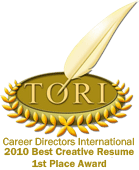
A job search is the most common but by no means the only reason you need a resume.
The most obvious reason you might need a resume is that you’re looking for a job. However, there are many other reasons you might want to put together a resume now, even if you’re not seeking new employment.
Your job changes: Your employment situation can change in a heartbeat — the company may be acquired, sold, or go out of business. A great boss may leave for a new position — and maybe he or she wants you to come along. The new boss may want to bring in their own people.
An Interview: Even if you don’t need a resume to apply for a position online, it is useful to have a well-organized, neatly formatted document to hand to the hiring manager at the beginning of an interview. The resume can also serve as “talking points” to guide the content of an interview. The time invested in compiling information on your credentials, skills, and accomplishments can also help prepare you for the job interview itself.
Proposal bio: Your current employer may even request a resume from you — for example, to include in a proposal the company is preparing for a new contract. It’s not uncommon for key personnel bios to be included in a response to a Request for Proposal (RFP) or applications for grants.
Promotion: If you want to apply for an internal promotion or transfer, you may not think a resume would be required, but often, it is. An internal recruiter or a hiring manager in a different part of a big company isn’t going to be familiar with all the aspects of what you do — and even if they have access to the job description for your position, that won’t tell them about the specific contributions that you’ve made in your current role. It’s your job to quantify and document your achievements — and a resume is a good way to do that, even for an internal position.
Annual Review: A good time to create or update your resume is when you are preparing for an annual performance review. Documenting your accomplishments can help you prepare to show your manager how you’ve added value to your position — and department — since your last review. The resume development process is also a good time for self-assessment. A well-written resume tells the “story” of your career — demonstrating consistent themes and supporting information that highlights your qualifications for the job target you’re seeking, while omitting irrelevant information and positions.
Speaking Engagement: Outside of an employment context, you may also be asked for a resume if you’re going to be a speaker for an organization or an event, so they can use the resume to create your bio and speaker’s introduction.
Political or Volunteer Roles: Individuals being considered for a political appointment — for example, a state government committee or board — will likely be asked for their resume. The same is true for individuals being considered for key volunteer roles — for example, if you are asked to be on a nonprofit’s board of directors.
Awards: You may also be asked for a resume if you are being considered for an award — or being given an award in recognition of your work or volunteer efforts.
Networking: Resumes are also a tool for networking. Someone you just met who is interested in learning more about you may ask for your resume. This contact may help lead you to unadvertised job openings. In the same way, getting your resume in the hands of someone who knows you well can also lead to new opportunities. They can use the resume to pass along to other people who might be in a position to hire you, or to use as a “door opener” to introduce you to other people who might be useful in your job search.
Marketing: The resume can also be used as a tool to market yourself. If you work in a service-oriented position, your skills, education, and expertise are a critical part of what makes you credible to potential clients. Having a resume — or a bio based on your resume — that communicates why you are a good choice to provide the service can help fill your appointment book, especially for therapists, clinicians, coaches, and teachers. A document that showcases your credentials can be an important part of your company or practice’s marketing materials.
College Applications: Resumes are important at any age. A resume can be a good resource for high school students applying for scholarships and to include with college applications. It can be updated throughout the college years and be used to apply for internships and part-time jobs. And, of course, once you graduate from college, you’ll likely need a resume to apply for your first job.
Private and Customized: It’s also important to note that a LinkedIn profile is not a substitute for a resume. Because a LinkedIn profile is public (even if you have your privacy settings locked down on LinkedIn, someone can still take a screenshot of your profile or create a PDF of it), there may be information that you do not want to include on your LinkedIn profile that can help demonstrate your accomplishments to a prospective employer. In addition, a resume can be customized to target a specific position, while you can only have one LinkedIn profile.
Help with LinkedIn: Furthermore, a well-written resume can actually help you populate your LinkedIn profile, making it easy to complete the “Work Experience” and “Education” sections.
Although the most common use for a resume is during a job search, there are many other times a resume is useful. If your resume isn’t up to date, contact me today to talk about your intended use and target for your resume.
Image courtesy everydayplus via FreeDigitalPhotos.net.









Always, always have an up-to-date resume. This article is great. Need assistance? Contact my office.